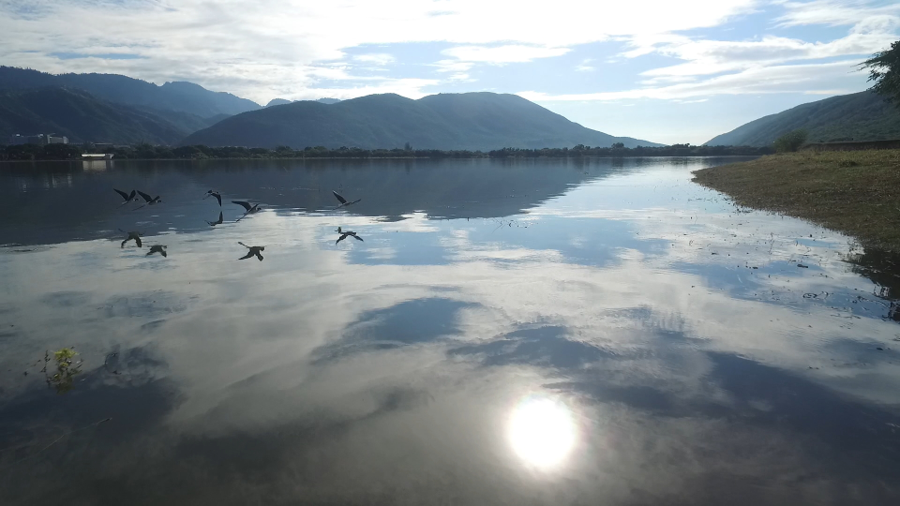The Caribbean has a plan to mitigate and adapt to the effects of global climate change while improving the efficient and sustainable exploitation of its water resources with the Regional Strategic Action Plan for Building Governance and Resilience in the Water Sector (RSAP). The RSAP was ratified at the 15th High-Level Forum for Caribbean Ministers Responsible for Water held in Bassetere, St. Kitts and Nevis in October 2019.
By Evan Cayetano*
The dwindling availability of freshwater is a challenge facing nearly every nation on earth. Population growth, industrialized agriculture, economic development and urbanization are increasing competition for water resources and putting antiquated supply and sanitation infrastructure under pressure.
Climate change is only making matters worse, especially in the Caribbean Basin. Rising sea levels and excessive extraction from the aquifers are causing saline intrusion, greater rainfall variability is leading to extreme drought, flash floods, water contamination and the increasing frequency and intensity of extreme weather events are compounding underlying structural problems. All of these challenges combine to make United Nations Sustainable Development Goal 6: Clean Water and Sanitation, all the more difficult for individual nations to achieve.
As freshwater supplies in critical watersheds and catchments dry up and buried infrastructure is put under greater stress by more intense rainfall and soil movement, key challenges like non-revenue water, -water put into distribution systems and not billed for- become harder to address.
The Inter-American Development Bank (IDB) and the Caribbean Water and Wastewater Association (CWWA) have responded to the unique set of challenges facing the region by coordinating the dialogue between ministers responsible for water, and among water utilities under the premise that, together, we are stronger and more capable of confronting both the persistent structural deficiencies and the growing threats posed by a warming planet.
The culmination of this effort is the . The RSAP document has undergone several revisions since it was first presented as a white paper at the 13th High Level Forum of Ministers Responsible for Water in Georgetown, Guyana in October, 2017. It outlines the core structural problems the region’s water utilities need to address, as well as the impacts of climate change on both water resources and water services, while proposing responses to each, and establishing a framework for action at national and regional levels.
Representatives of 17 regional governments endorsed the First Implementation Plan – Regional Level Responses, of the RSAP at the 15th High Level Forum for Caribbean Ministers Responsible for Water on 15 October 2019 in Basseterre, St. Kitts. The First Implementation Plan outlines the regional level responses around the five pillars of the RSAP: Climate Resilient Water Governance, Climate-informed Decision Support, Climate-resilient Water Resources Management, Climate-resilient Water Service Provision, and Capacity-building and Sensitization for Climate-resilience.
For each RSAP pillar, a set of objectives has been established around which national-level actions are identified. While national governments and water utilities are largely responsible for these actions, the Implementation Plan recognizes the crosscutting and regionally common dimensions for which collective or collaborative action can promote best practices and reduce time, effort and costs.
The 15th High Level Forum followed a Regional Workshop held the previous month in Montego Bay, Jamaica, which convened heads of water utilities from across the Caribbean Basin to provide feedback on the RSAP and share insights on how to put the RSAP into action. The Regional Workshop also served to identify areas of intervention that could be supported by the IDB, the Caribbean Development Bank and other development partners. Funding is recognized as a major constraint in extending the reach of water supply and sanitation infrastructure and fortifying these assets to bolster climate change resilience, but with strong governance, this challenge is surmountable by engaging the private sector under public-private partnerships and accessing concessionary loans and grants.
More significant than the financial resources required to support the sustainable and climate-resilient development of the water sector in the Caribbean is the vision, leadership and commitment necessary to follow through on the actions outlined in the RSAP First Implementation Plan. Policymakers must delicately balance their responsibility to provide the human right to water for their constituents while allowing managerial autonomy to water utilities to allocate resources and conduct operations.
Climate change and climate variability are already being felt across the Caribbean. As water resources come under increasing pressure, effective governance will become even more critical, with robust protocols required to mitigate the negative social and economic impacts.
In its recent report Lifeline: The Resilient Infrastructure Opportunity, the World Bank pointed out that the marginal cost of incorporating resiliency measures, which vary between 3% and 30%, depending on the type of infrastructure, has a big pay off in savings on relief, recovery and reconstruction when disaster strikes. The report also highlighted that without incorporating resiliency into governance practices, other investments in resiliency are essentially ineffective. These findings support the focus on governance in the RSAP document and First Implementation Plan, and underscore the need to strengthen institutional frameworks, craft enabling policies and regulations and defend autonomous management of water resources.
Making critical infrastructure more resilient requires action on multiple levels, from policymakers to resource managers and service providers to end-users. Mitigating the negative impacts of climate change and adapting to more extreme environmental conditions will require resilient assets, resilient services and resilient users. Prudent use of energy and financial resources will be critical to improving the efficiency of water resource management in the region.
Governments and water utilities of the Caribbean Basin deserve credit for responding to the pressing need to improve governance by promoting greater transparency, improving data collection and monitoring and building institutional capacity in the water sector in the face of the growing threat of climate change. Many countries of the region have already begun to develop Nationally Appropriate Mitigation Actions under the United Nations Framework Convention on Climate Change and preparing National Adaptation Plans to reduce vulnerability to the impacts of climate change. These actions match those called for in the RSAP First Implementation Plan and will be strengthened by the regional cooperation the RSAP framework provides. Successful applications to the Green Climate Fund to address climate related challenges set a precedent for the capacity of the region to leverage concessional financing, but the vital work has only just begun.
The IDB committed to continue providing financial resources and technical assistance to improve governance and climate resilience in the water sector across Latin America and the Caribbean and will maintain its support as governments and water utilities of the region respond to the call to action outlined in the RSAP to ensure effective and efficient implementation of these critical measures.

Evan Cayetano is a water and sanitation specialist with the IDB since 1997. He has prepared and supervised loans and technical cooperation grants in the water sector for The Bahamas, Barbados, Jamaica, Suriname and Trinidad and Tobago and Guyana. He is the Team Leader for the ongoing Regional Strategic Action Plan for the Water Sector in the Caribbean to Develop Resilience to the Impacts of Climate Change (RSAP) and the focal point for the IDB Water and Sanitation Division for the Caribbean. Mr. Cayetano holds a M.Sc. in Coastal Zone Management from Florida Institute of Technology, a B.Sc. in Marine Biology from Texas A&M University.


Leave a Reply